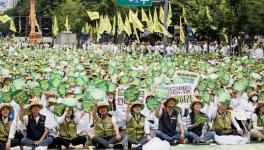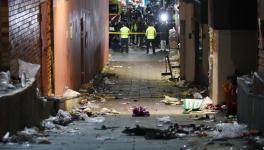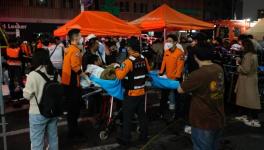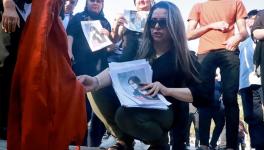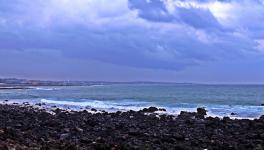South Korean Trade Unionist Lee Young Joo Released From Prison
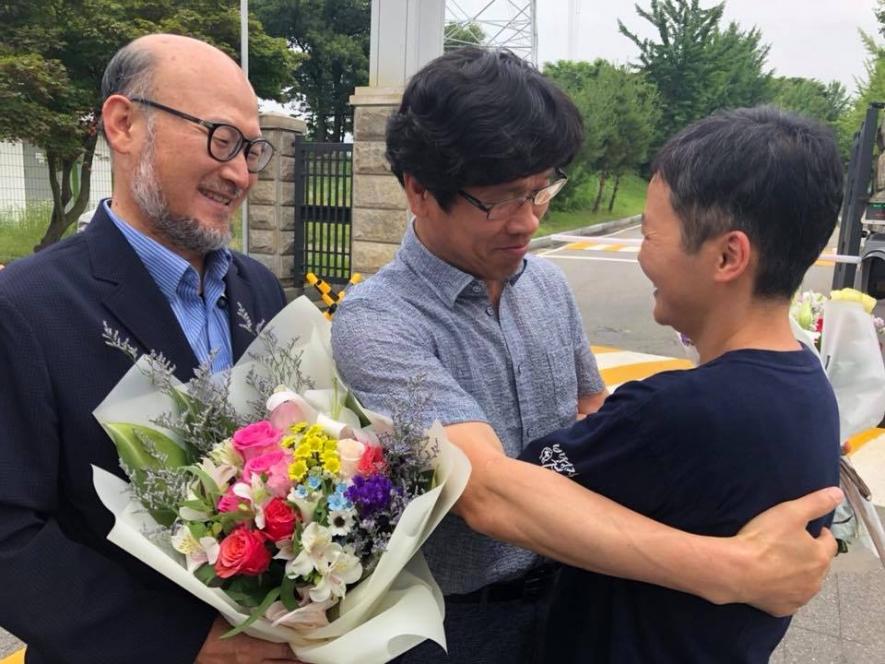
Image Courtesy: KCTU/ Facebook
Lee Young Joo, one of the leaders of the 2015 mass movement against repressive labour reforms and corruption in the government of the former Korean President Park Geun-hye was released from prison on Thursday, last week. Lee, the former General Secretary of the Korean Confederation of Trade Unions (KCTU), was released from prison in the early hours of June 14 after being given a suspended sentence.
Lee’s release follows the release of her colleague, former president of KCTU, Han Sang-gyun, who was also held at the same detention centre (Hwaseong Detention Center in Gyeonggi Province) since December 2015. Han was released on May 21, 2018 after serving two years, five months and twelve days of his five-year-sentence.
“We celebrate the liberation of our Sister Lee Young-joo from prison. We are however saddened by the fact that the court did not drop all the charges against her” said Kemal Özkan, assistant general secretary of IndustriALL in a statement.
“President Moon should pay special attention to this case and do everything in his power to put workers’ interests high on the agenda in Korea,” Özkan added.
Lee was arrested on June 12, 2017 for her role in organising the People’s Mass Mobilisation rally on November 14, 2015 against a government proposal for repressive labour law reforms, which would make it easier for big corporations to fire workers and reduce wages. The rally was also against the government’s plan to get rid of all independent history books and make government issued history textbooks compulsory in schools.
The then president Park Geun-hye’s crackdown on the protests led to the death of a farmer Baek Nam-gi, who died of injuries after being shot from very close by a water cannon on 4 November 2015. Police was accused of using excessive force against peaceful protesters.
Nam-gi was a student activist during his early days and was also expelled from school twice for protesting the rule of the military dictator Park Chung-hee, father of Park Geun-hye.
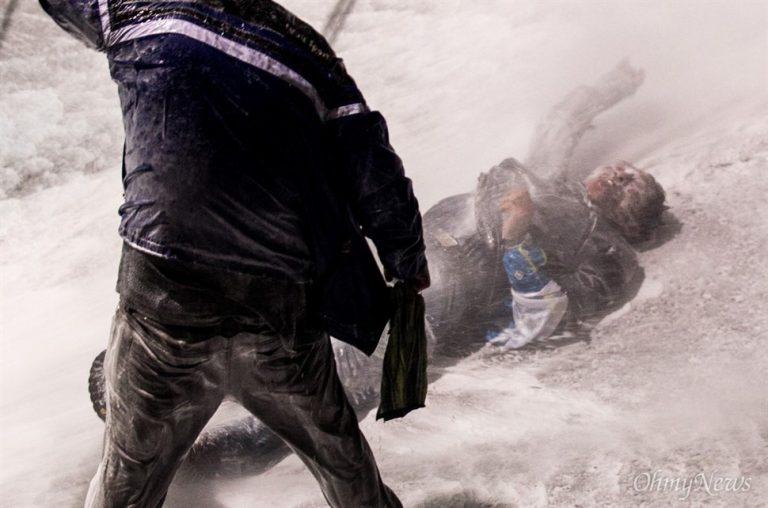
Baek Nam-gi/ Image: Amnesty International
The 2015 protest by the trade unions led to the ‘candlelight struggle’ in which millions of people took to the street in protest against the government. The movement led to impeachment and conviction of Park Geun-hye. The former president is now serving a 24-year-sentence after being convicted of all charges related to corruption and abuse of power, including blacklisting artists critical to her policies.
In June 2016, the United Nations Special Rapporteur on freedom of peaceful assembly and of association, Maina Kiai in a report to the UN Human Rights Council about the Han Sang-gyun case had said “charging assembly participants with certain criminal offences, such as the general obstruction of traffic, de facto criminalises the right to peaceful assembly”.
Get the latest reports & analysis with people's perspective on Protests, movements & deep analytical videos, discussions of the current affairs in your Telegram app. Subscribe to NewsClick's Telegram channel & get Real-Time updates on stories, as they get published on our website.










